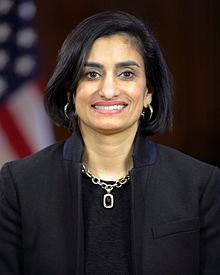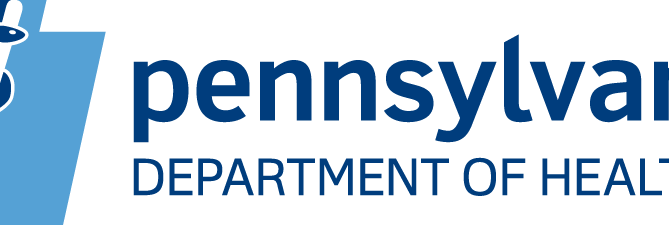CMS’s Verma Visits Western PA
COVID-19 was the primary subject on the minds of health care executives who met with Centers for Medicare & Medicaid Services Administrator Seema Verma in western Pennsylvania on Tuesday.
 Among the issues discussed at a health care forum were the concerns of hospital administrators about rising COVID-19 case counts and their worries over the adequacy of supplies of available hospital beds, drugs, and personal protective equipment in the near future; steps like enhanced access to telehealth that CMS has made available for Medicare beneficiaries to help them during the pandemic; the work – and continued existence – of the Regional Response Health Collaboratives that support long-term-care facilities fighting COVID-19 outbreaks and the possibility that those collaboratives may expire in December; and more.
Among the issues discussed at a health care forum were the concerns of hospital administrators about rising COVID-19 case counts and their worries over the adequacy of supplies of available hospital beds, drugs, and personal protective equipment in the near future; steps like enhanced access to telehealth that CMS has made available for Medicare beneficiaries to help them during the pandemic; the work – and continued existence – of the Regional Response Health Collaboratives that support long-term-care facilities fighting COVID-19 outbreaks and the possibility that those collaboratives may expire in December; and more.
Learn more about Ms. Verma’s visit to Pennsylvania in the Pittsburgh Business Times article “Hospital, nursing home execs tell CMS administrator they need more help.”
 Pennsylvania Health Secretary Rachel Levine, M.D., held a news conference on Monday to discuss the status of the COVID-19 public health emergency in the state and answer questions from reporters.
Pennsylvania Health Secretary Rachel Levine, M.D., held a news conference on Monday to discuss the status of the COVID-19 public health emergency in the state and answer questions from reporters. The Department of Health has published an
The Department of Health has published an  Applications for the Provider Relief Fund Phase 3 general distribution are now being accepted by HHS. HHS will hold a webcast on Monday, November 2 at 3:00 p.m. (eastern) for interested parties. Go
Applications for the Provider Relief Fund Phase 3 general distribution are now being accepted by HHS. HHS will hold a webcast on Monday, November 2 at 3:00 p.m. (eastern) for interested parties. Go  Four weeks after HHS announced that it would distribute 150 million state-of-the-art Abbott BinaxNOW COVID-19 tests nationally to assist with states’ reopening efforts, states have begun to report back to HHS about how they are choosing to distribute the rapid, point-of-care tests. Of the states that have provided preliminary reports, the BinaxNOW allocations are largely being sent to local health departments, K-12 schools and institutes of higher education, nursing homes, hospitals, and correctional facilities. Learn more from
Four weeks after HHS announced that it would distribute 150 million state-of-the-art Abbott BinaxNOW COVID-19 tests nationally to assist with states’ reopening efforts, states have begun to report back to HHS about how they are choosing to distribute the rapid, point-of-care tests. Of the states that have provided preliminary reports, the BinaxNOW allocations are largely being sent to local health departments, K-12 schools and institutes of higher education, nursing homes, hospitals, and correctional facilities. Learn more from  The CDC has updated its
The CDC has updated its  Created in July to help long-term-care facilities address their struggles responding to the COVID-19 emergency, the state has six RRHCs led by 11 Pennsylvania health systems. The RRHCs were created to provide clinical, operational, technical, and educational support to long-term-care facilities at a time when COVID-19-related deaths in such facilities accounted for more than 60 percent of all COVID-19 deaths state-wide. With financial backing from the federal CARES Act, the RRHCs support nearly 2000 long-term-care facilities of different types at which more than 127,000 Pennsylvanians currently reside.
Created in July to help long-term-care facilities address their struggles responding to the COVID-19 emergency, the state has six RRHCs led by 11 Pennsylvania health systems. The RRHCs were created to provide clinical, operational, technical, and educational support to long-term-care facilities at a time when COVID-19-related deaths in such facilities accounted for more than 60 percent of all COVID-19 deaths state-wide. With financial backing from the federal CARES Act, the RRHCs support nearly 2000 long-term-care facilities of different types at which more than 127,000 Pennsylvanians currently reside. DHS’s Office of Developmental Programs
DHS’s Office of Developmental Programs  CMS announced that
CMS announced that  CMS has expanded the list of telehealth services that Medicare fee-for-service will pay for during the COVID-19 public health emergency, adding 11 new services to the Medicare telehealth services list. Medicare will begin paying for these services immediately and for the duration of the COVID-19 emergency. These new telehealth services include certain neurostimulator analysis and programming services and cardiac and pulmonary rehabilitation services. Go
CMS has expanded the list of telehealth services that Medicare fee-for-service will pay for during the COVID-19 public health emergency, adding 11 new services to the Medicare telehealth services list. Medicare will begin paying for these services immediately and for the duration of the COVID-19 emergency. These new telehealth services include certain neurostimulator analysis and programming services and cardiac and pulmonary rehabilitation services. Go  The letter refers to changes in how the federal Department of Health and Human Services wants hospitals to calculate the revenue they lost as a result of COVID-19 – the justification in part for the Provider Relief Fund payments hospitals have received through the CARES Act. In June, HHS told hospitals how to make that calculation but late last month it changed those directions in ways that could force many Pennsylvania safety-net hospitals to return some or even much of the federal aid they received.
The letter refers to changes in how the federal Department of Health and Human Services wants hospitals to calculate the revenue they lost as a result of COVID-19 – the justification in part for the Provider Relief Fund payments hospitals have received through the CARES Act. In June, HHS told hospitals how to make that calculation but late last month it changed those directions in ways that could force many Pennsylvania safety-net hospitals to return some or even much of the federal aid they received.
 Provider Relief Fund
Provider Relief Fund Food and Drug Administration
Food and Drug Administration Included in this month’s edition are articles about:
Included in this month’s edition are articles about: Department of State
Department of State